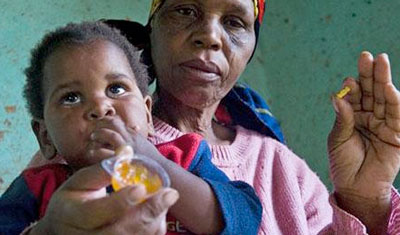On June 5, 1981, the United States Centers for Disease Control and Prevention (CDC) reported the outbreak of an unusual form of pneumonia in Los Angeles.
![]() A few weeks later, when CDC’s scientists noticed a similar cluster of a rare cancer called Kaposi’s sarcoma in San Francisco, they suspected that something serious was happening.
A few weeks later, when CDC’s scientists noticed a similar cluster of a rare cancer called Kaposi’s sarcoma in San Francisco, they suspected that something serious was happening.
That something turned out to be AIDS.
Since then more than 30 million people have died of the disease and more than 33 million people are living with HIV/AIDS worldwide.
UNAIDS, a United Nations program, has issued a report: “AIDS at 30: Nations at the Crossroads.” Its message is simple and harsh: more money and better programs are needed to win the war on HIV/AIDS.
Executive director Michel Sidibé states that the disease remains “a metaphor for inequality,” as the vast majority of patients live in Africa, where nearly 400,000 babies are born with HIV annually.

“If you’re privileged to be born in the North, you will not die from HIV. If you’re privileged to be born in the North, you will not have a baby born with HIV,” says Sidibé. “Countries need to start looking at innovative financing. We need to have drugs which are not just for the rich market.”
The UN General Assembly in New York will hold a high-powered meeting with 26 heads of states from June 8 to June 10 to assess the progress in the campaign against HIV/AIDS.
What comes out of it will be interesting and, hopefully, helpful. However, it is politics, and with politics comes a lot of talk and not much action. So let’s turn away from politics, do a 360-degree flip and look at theatre.
The Advocate has featured an article on a play, The Infection Monologues, written by Alex Garner, in which five men tell their own stories of living with HIV/AIDS.

One of the characters is loosely based on Garner, who is HIV-positive.
“I got HIV right before protease inhibitors happened, so I had this unique experience of straddling the fence in terms of the epidemic,” Garner says. “I received my diagnosis when you still thought you could die in 10 years. Then protease happened and the whole world changed overnight.”
And lastly, the good old BBC has a great article of how the AIDS red ribbon has become a global symbol.
 Why you can trust Xtra
Why you can trust Xtra


